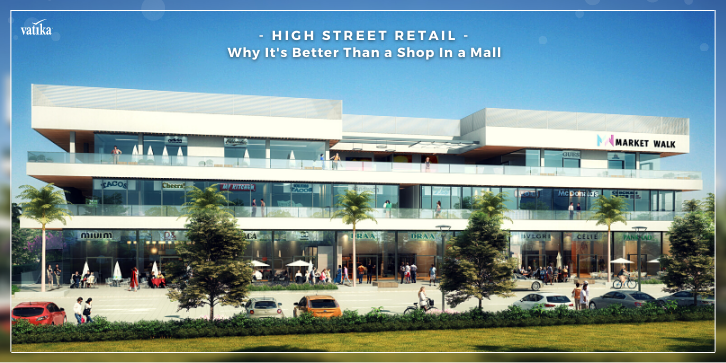
It is of no astounding surprise that high street retail stores are the new royals in town. There has been a visible and understandable shift, as consumers are tilting their preferences more towards high-street retail stores than conventional shopping malls.
This dynamism in preference can also be attributed to the coronavirus lockdown, which strained relations between the mall owners and retailers and their inability to pay the fixed costs before their due dates.
In case you are pondering upon the reasons to justify this shift in preference, this blog has got you covered. Elucidated below are the valid reasons for this new normal focus on high-street retail stores than regular shopping malls.
1. Higher ROIs
On making a lump sum investment, what retailers look for is a high return on these investments after they have opened a store. Investments made in independent retail stores have more promising returns than the ones made in malls.
2. Smoother Omni-Channel Retailing
Omni-channel retailing has become a potent method of marketing when it comes to captivating customers and establishing a good funnel customer strategy. The importance of alluring customers into buying products is a primary objective for entrepreneurs, and establishing proximity with consumers is a great initiative to nail omnichannel retailing, which is prevalent in high-street retail stores. In sharp contrast, it is difficult to pin a customer into coming into your store and buying a product.
3. Elevated Average Sales
What retailers look for when setting up a store, are high average sales. High-street retail stores have recorded to have higher average sales than those of malls. This is because consumers already anticipate a purchase before entering the retail store, whereas malls entice a more shopping-cum-strolling incident, where no real purchase on behalf of the customers can be guaranteed.
4. Safer Option
The coronavirus situation has instilled and integrated fear in people’s minds and any crowded places these days are tried to be avoided. Malls, being a joint enterprise, naturally contain crowds that are not favorable for corona. The high-street retail stores are standalone stores, which means less crowd, and a safer option to shield oneself from being infected.
5. Profitable Venture for Single Brands in Small Cities
It is imperative to note that high-street retail stores cannot be inaugurated everywhere. In big cities, the high rents and low returns incur more loss than profit for these brands. The monthly rent is more than what the cash inflow is for these brands in big cities like Delhi and Mumbai, where the mall life is preferred.
That is why high-street retail store trends are more profitable for single-brand owners and restaurants that are found in small cities where the rent is comparatively low.
Thus, high- street retail stores are becoming the new normal, as big brands are shifting their focus to connect with consumers, to create a brand of loyal customers. For example, around 60% of Biba stores have now been turned into high-street retail stores. Contact us for magnified information on the same.


